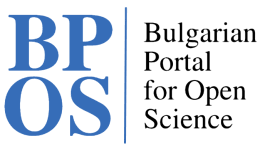VOL. 62, BOOK 1, PART C, 2024, pp. 159 – 167 Full text (En)
Author: Daniel Kamenov
Affiliation: Paisii Hilendarski University of Plovdiv
Abstract
After writing his masterpiece Robinson Crusoe, Daniel Defoe presented his readers with a novel about a controversial type of protagonist that does not fit social norms at a time when morality was rigidly defined and enforced. Moll Flanders is a con-woman and a criminal that pleads penitence at the end of her life as she narrates the events that led her to an existence on the streets and in jail. From a secular perspective, however, her plea to the reader turns into a call for acknowledgement as she self-consciously revisits all her previous deeds and both explains her motivation and takes responsibility for her actions. Using Simone de Beauvoir’s The Ethics of Ambiguity, I shall analyze her call to be acknowledged by potential readers from the perspective of existential authenticity.
Key words: Moll Flanders, Defoe, existentialism, authenticity, morality, bad faith













